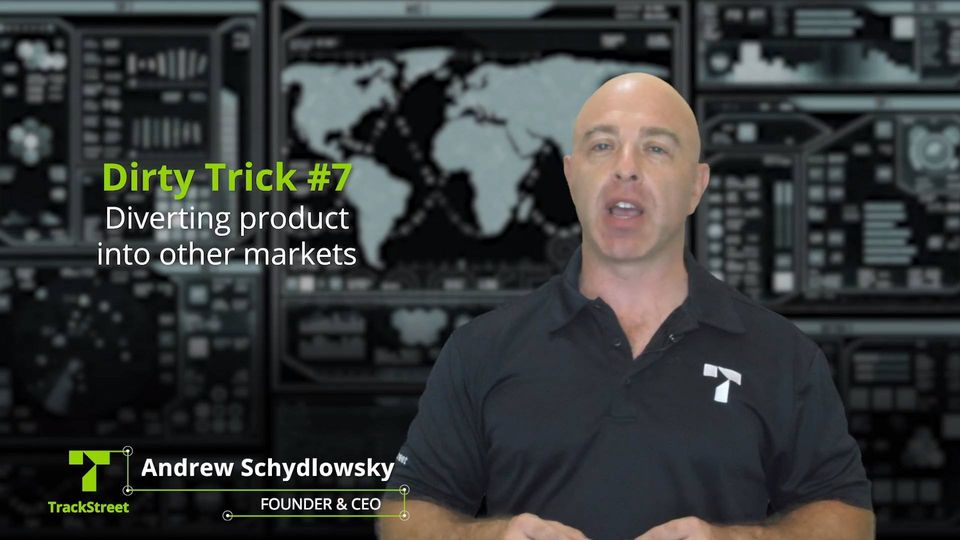The seventh dirty trick we see from rogue resellers is to divert product into a market they’re not supposed to. For example, some brands offer significantly lower pricing targeted for their export markets, but it’s often a small matter for rogue reseller set up a phony entity or drop shipping order of a product location on or near the border and diverted back the US market and sell online for a much higher markup. There are many warehouse facilities which will enable these kinds of shipments while not asking questions, which also makes our services a popular fit for counterfeit or knock off sellers. And if you use different skews to try to differentiate your products from markets, some rogue sellers will try to market their products under an alias or phony entity on sites like Amazon, or different skews and a sense but with the same product descriptions and photos as a higher price product for the US market and hope because he doesn’t notice or you for that matter.
The best strategy to prevent this is take steps to stop rogue sellers from sourcing your product in the first place. We recommend doing adequate research on all new resellers as part of your application program for accepting and renewing authorized dealers. TrackStreet offers a dealer portal that can help you quickly and easily accept and process applications from new resellers, communicate with your dealer base and provide easy access to things like sell sheets and logos. As part of your dealer acceptance process. Be sure to perform credit checks and verify the corporate ownership information of any applicant or parent company. Any acceptance process should also clearly define any necessary rules about which markets an authorized dealer may sell in and where they may not qualify for your program.
Second, you must continuously monitor all the websites that your consumers may use to find your product online including major marketplaces like Amazon, Overstock, Walmart, Target and more. You may try to do so manually, but it becomes impossible to continually watch all of the sites where your products might pop up. TrackStreet market visibility module uses an advanced proprietary web crawler to track your products and a sophisticated artificial intelligence engine discerns match between your products and what’s displayed online using things like product name, description, UPC, ASIN, or even images. Even in times of day that your staff may not be watching the markets tracks you can identify potential matches, take a screenshot of who’s selling it, or what site and at what price. This kind of actionable intelligence can then be used to automatically notify resellers violating your resale or minimum advertised pricing policies. If you combine them other modules, like the map and resale pricing module from TrackStreet.

